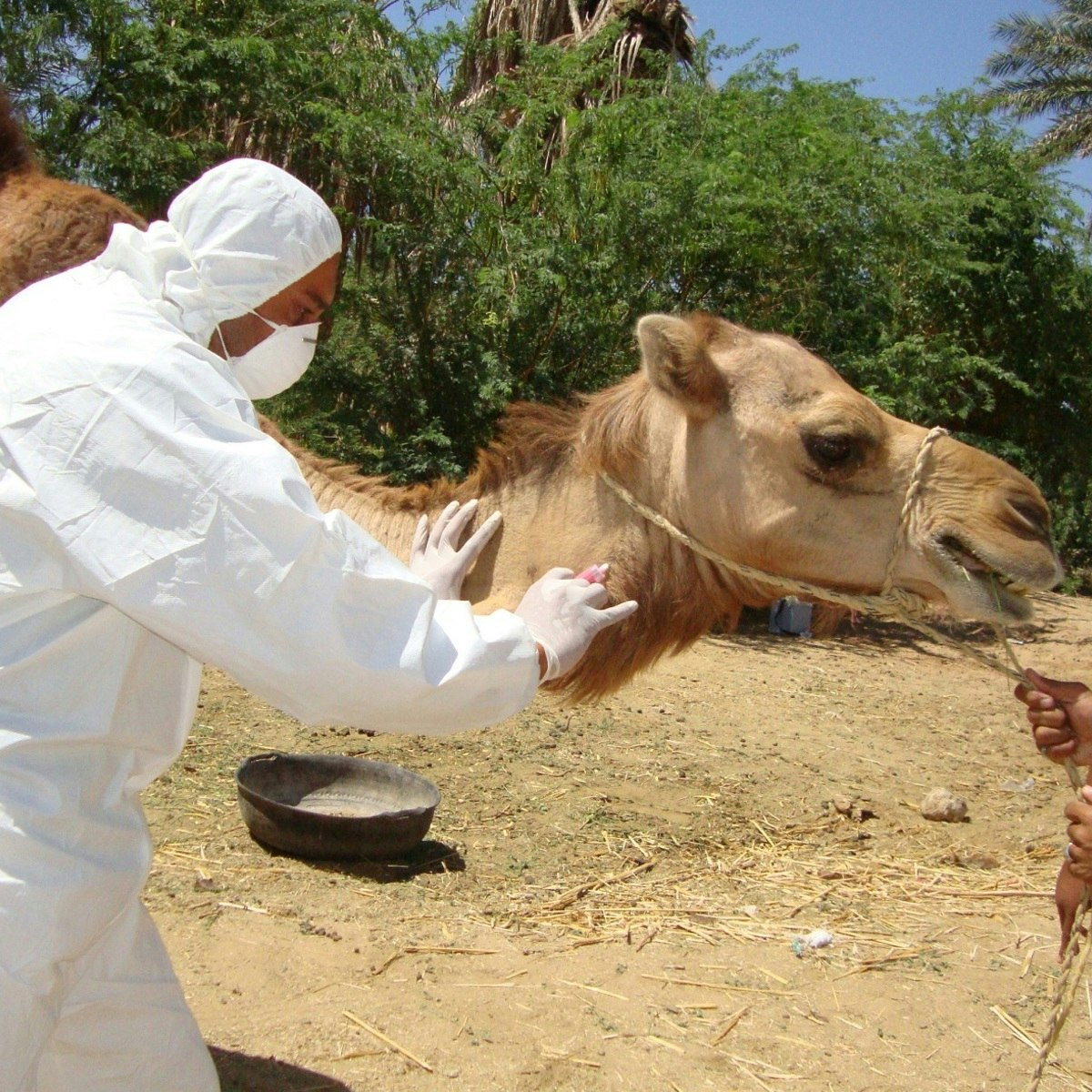Veterinarian
Veterinarian
Veterinary medicine is the branch of science dedicated to the health and well-being of animals. Veterinarians are medical professionals who diagnose, treat, and prevent diseases and injuries in a wide range of animal species, from beloved companion animals like dogs and cats to essential livestock, exotic pets, and wildlife. Their work extends far beyond individual animal care, playing crucial roles in public health, food safety, and scientific research.
Working as a veterinarian offers the unique opportunity to combine a passion for animals with rigorous scientific knowledge and medical skill. Many find deep satisfaction in healing animals, alleviating suffering, and strengthening the bond between humans and animals. The field is constantly evolving, presenting exciting challenges in diagnostics, treatment, and understanding the complex interplay between animal, human, and environmental health.
Introduction to Veterinary Medicine
What is Veterinary Medicine?
At its core, veterinary medicine involves applying medical, diagnostic, and therapeutic principles to companion, domestic, exotic, wildlife, and production animals. Veterinarians are trained to address health issues across species, requiring a broad understanding of anatomy, physiology, pharmacology, and pathology adapted to different types of animals.
The scope is vast. It includes routine wellness checks and vaccinations, complex surgical procedures, emergency critical care, managing chronic illnesses, and addressing behavioral problems. Beyond clinical practice, veterinarians contribute significantly to safeguarding public health by controlling zoonotic diseases – those transmissible between animals and humans – and ensuring the safety of our food supply derived from animals.
This field requires not only a deep love for animals but also strong scientific aptitude, problem-solving skills, excellent communication abilities, and emotional resilience. It's a career that demands continuous learning to keep pace with medical advancements and changing animal health needs.
A Brief History
The practice of caring for animals dates back centuries, often intertwined with the needs of agriculture and transportation. Formal veterinary education began to emerge in Europe in the 18th century, primarily focused on horses for military and economic purposes, and livestock for food production. The establishment of veterinary schools, like the one founded in Lyon, France, in 1762, marked the professionalization of the field.
Over time, the focus expanded significantly. The 20th century saw major advancements in anesthetics, antibiotics, vaccines, and surgical techniques, dramatically improving the ability to treat a wider range of conditions in more species. The latter half of the century brought increased attention to companion animal medicine, reflecting the changing role of pets in society.
Today, veterinary medicine incorporates sophisticated diagnostic tools like MRI and ultrasound, specialized fields mirroring human medicine (oncology, cardiology, neurology), and a growing emphasis on preventative care and the interconnectedness of animal, human, and environmental health under the "One Health" umbrella.
The Veterinarian's Role in Society
Veterinarians are essential members of the community, contributing far beyond the walls of their clinics. Their most visible role is providing healthcare for companion animals, enhancing the lives of pets and their owners. However, their societal impact is much broader.
In agriculture, veterinarians are vital for maintaining the health and productivity of livestock, ensuring a safe and stable food supply. They work with farmers to prevent disease outbreaks, optimize nutrition, and manage animal welfare on farms. This role is critical for both economic stability and food security.
Veterinarians are also on the front lines of public health. They play a key role in surveillance, diagnosis, and control of zoonotic diseases, protecting human populations from illnesses like rabies, Lyme disease, and avian influenza. Furthermore, many veterinarians work in research, contributing to advancements in both animal and human medicine, developing new drugs, vaccines, and therapies.
Roles and Responsibilities of Veterinarians
Caring for Animals
The most recognized duty of a veterinarian is clinical care. This involves examining animals to diagnose health problems, which can range from routine check-ups to complex medical investigations. They interpret symptoms, utilize diagnostic tools like X-rays, blood tests, and ultrasounds, and develop treatment plans.
Treatment can involve prescribing medication, performing surgery (from spays and neuters to intricate orthopedic or soft tissue procedures), administering therapies, providing dental care, and managing chronic conditions like diabetes or arthritis. Veterinarians tailor their approach based on the species, breed, age, and specific needs of the animal patient.
This care extends across diverse species. Companion animal vets primarily treat dogs and cats, while large animal vets focus on livestock like cattle, horses, sheep, and pigs. Others specialize in exotic animals (birds, reptiles, small mammals) or wildlife, each requiring unique knowledge and skills.
These courses offer insights into animal behavior and welfare, which are integral to providing compassionate care.
Guardians of Public Health
Veterinarians serve as crucial guardians of public health by monitoring and controlling diseases that can spread between animals and humans (zoonotic diseases). They investigate disease outbreaks in animal populations, implement quarantine measures, and advise public health officials on prevention strategies.
Food safety is another critical area. Veterinarians working in government agencies (like the USDA in the US) or industry inspect livestock and food processing facilities to ensure that meat, milk, and eggs are safe for consumption. They help prevent contamination and the spread of foodborne pathogens.
Through vaccination programs for animals (e.g., rabies), veterinarians create a barrier that protects humans. Their expertise in epidemiology and disease transmission is vital for understanding how diseases emerge and spread, informing public health policy and response efforts, especially in the context of global health security.
These resources delve deeper into the principles of disease control and public health connections.
Advancing Science Through Research
Many veterinarians pursue careers in research, contributing significantly to the advancement of both animal and human medicine. Their unique understanding of comparative physiology and pathology across species makes them valuable contributors to biomedical research.
Veterinary researchers investigate the causes, diagnosis, treatment, and prevention of animal diseases. They develop new diagnostic tests, surgical techniques, drugs, and vaccines specifically for animals. This work directly improves the quality and length of life for countless animals.
Furthermore, because animals often suffer from diseases similar to humans (e.g., cancer, diabetes, heart disease), research in veterinary medicine frequently yields insights applicable to human health. Veterinarians play a key role in translational research, helping to bridge the gap between basic science discoveries and clinical applications for both animals and people, often working in universities, government labs, or pharmaceutical companies.
These courses touch upon research methodologies and the bridge between animal studies and human health applications.
Formal Education Pathways
Preparing for Veterinary School
The path to becoming a veterinarian begins long before applying to veterinary school. Aspiring vets typically need a bachelor's degree, focusing on science-intensive coursework. Common prerequisites include biology, general chemistry, organic chemistry, physics, biochemistry, and mathematics (calculus and statistics).
Academic performance is critical; veterinary school admissions are highly competitive, requiring strong grades, particularly in science courses. Beyond academics, significant hands-on experience with animals is essential. This often involves volunteering or working in veterinary clinics, animal shelters, research labs, or on farms.
Shadowing veterinarians in various settings provides invaluable insight into the profession's realities. Diverse experiences demonstrating commitment, responsibility, and an understanding of the field strengthen an application. Strong letters of recommendation from veterinarians and professors are also crucial.
The Doctor of Veterinary Medicine (DVM) Program
Admission to a Doctor of Veterinary Medicine (DVM or VMD) program is the central step. These are typically four-year, intensive graduate programs. The first two to three years usually focus on foundational biomedical sciences, covering anatomy, physiology, pharmacology, pathology, microbiology, immunology, and specific animal diseases.
Learning involves lectures, laboratory work (including anatomy dissections and histology), and problem-based learning scenarios. The curriculum is rigorous and demanding, requiring significant study time and dedication. Students learn about various species and body systems in depth.
The final year (or portion thereof) consists primarily of clinical rotations. Students work alongside experienced veterinarians in various specialties (e.g., small animal medicine, large animal surgery, emergency care, dermatology) within a veterinary teaching hospital or affiliated practices. This hands-on training is crucial for developing practical diagnostic and treatment skills.
These foundational textbooks are essential companions throughout veterinary studies, covering critical areas like anatomy, physiology, and microbiology.
Licensing and Practice
Graduating with a DVM degree is not the final step; veterinarians must obtain a license to practice. In the United States and Canada, this requires passing the North American Veterinary Licensing Examination (NAVLE), a comprehensive test covering all aspects of veterinary medicine.
In addition to the NAVLE, most states or provinces require veterinarians to pass a state or provincial jurisprudence exam, which tests knowledge of local laws and regulations governing veterinary practice. Requirements can vary, so checking with the specific licensing board in the intended area of practice is essential.
Maintaining a license typically involves completing a certain amount of continuing education each year to stay current with medical advancements. For those wishing to practice internationally, licensing requirements vary significantly by country and often involve additional examinations or credential reviews.
Online and Alternative Learning Opportunities
Building Foundational Knowledge Online
While a DVM requires intensive in-person training, online learning offers valuable opportunities for those exploring the field or supplementing their education. Numerous online courses cover foundational topics relevant to veterinary medicine, such as general biology, animal behavior, introductory anatomy and physiology, and nutrition.
These courses can be particularly helpful for high school students considering veterinary medicine, undergraduates fulfilling prerequisites, or individuals contemplating a career change. They provide accessible ways to gauge interest, build baseline knowledge, and understand core concepts before committing to the demanding path of veterinary school.
OpenCourser offers a vast catalog where you can search for courses in animal science, biology, and related health fields to start building your foundation.
These online courses provide introductions to animal behavior, welfare, and related institutional contexts.
Specialized Online Certifications
Beyond introductory material, online platforms offer specialized courses and certificate programs in areas relevant to veterinary practice or related animal fields. These might include topics like veterinary terminology, practice management, specific aspects of animal nutrition, fear-free handling techniques, or grief counseling for pet owners.
For practicing veterinarians or veterinary technicians, these programs can fulfill continuing education requirements or allow for skill development in a niche area. For those in related roles, such as animal shelter staff or dog trainers, specialized online learning can enhance their expertise and professional credentials.
While these certifications do not replace formal degree programs for licensure, they represent flexible and targeted ways to deepen knowledge in specific domains of animal health and care.
Bridging Online Learning and Practical Skills
It is crucial to understand that online learning alone cannot qualify someone to become a licensed veterinarian. The hands-on clinical skills, surgical training, and supervised patient care inherent in a DVM program are irreplaceable components that require in-person, practical experience under expert guidance.
However, online courses can effectively supplement formal education by reinforcing classroom learning or providing deeper dives into specific subjects. For those exploring a career change, online learning can be a realistic first step to understand the theoretical underpinnings of the field before committing to the significant time and financial investment of veterinary school.
If the full DVM path seems daunting or isn't feasible, foundational online learning combined with practical experience can open doors to other rewarding careers in animal care, such as becoming a veterinary technician, an animal shelter worker, or an animal trainer. It's about finding the right path that aligns with your passion and circumstances, and online resources can be a valuable tool in that exploration.
Veterinarian Specializations and Career Paths
Clinical Specialties
After obtaining a DVM, many veterinarians choose to pursue advanced training to become board-certified specialists in a particular area of veterinary medicine, similar to specialties in human medicine. This typically involves completing a one-year rotating internship followed by a two-to-three-year residency program focused on the chosen specialty.
Residency programs provide intensive, supervised training in areas such as internal medicine, surgery, cardiology, oncology, neurology, dermatology, ophthalmology, emergency and critical care, anesthesiology, radiology, and more. Following residency, candidates must pass rigorous examinations administered by a recognized veterinary specialty board (e.g., ACVIM, ACVS).
Board-certified specialists often work in large referral hospitals or academic institutions, handling complex cases referred by general practitioners. Specialization allows veterinarians to develop deep expertise and offer advanced diagnostic and therapeutic options.
Advanced surgical and medical knowledge is core to many specialties. These texts cover key areas in depth.
Research and Academia
For veterinarians passionate about discovery and education, careers in research and academia offer fulfilling paths. These roles often require additional advanced degrees, such as a Master's (MS) or Doctor of Philosophy (PhD), sometimes pursued through combined DVM/PhD programs.
Veterinary researchers work in universities, government agencies (like the NIH or USDA), or private industry (pharmaceutical or biotechnology companies). They design and conduct studies to understand disease mechanisms, develop new treatments, improve diagnostics, or enhance animal production and welfare.
In academia, veterinarians also teach veterinary students, train interns and residents, and contribute to the body of scientific knowledge through publications and presentations. Academic positions combine clinical work, teaching, and research, shaping the future of the profession.
Beyond the Clinic: Diverse Roles
A DVM degree opens doors to a wide array of career paths beyond traditional clinical practice. Many veterinarians find rewarding roles in government service, working for agencies like the U.S. Department of Agriculture (USDA), Food and Drug Administration (FDA), or Centers for Disease Control and Prevention (CDC) in areas of food safety, animal disease control, and public health policy.
The military also employs veterinarians to care for military working animals and ensure food safety for troops. Opportunities exist in the pharmaceutical and animal health industries, involving research and development, technical services, or sales and marketing of veterinary products.
Other paths include zoo and wildlife medicine, aquatic animal health, shelter medicine, animal welfare organizations, and consulting. These diverse roles leverage veterinary expertise to address a broad spectrum of animal health and societal needs.
Exploring these careers can lead down unique and impactful paths.
Work Environments and Challenges
Where Do Veterinarians Work?
The work environment for veterinarians varies greatly depending on their chosen path. Many work in private clinical practice, which can range from small, single-doctor clinics focusing on companion animals to large, multi-specialty hospitals open 24/7 for emergency care.
Some veterinarians operate mobile practices, traveling to farms to treat livestock or visiting homes for companion animal care. Others work in corporate-owned veterinary chains, animal shelters, zoos, or aquariums. Rural veterinarians often have mixed practices, treating both large and small animals.
Beyond clinical settings, veterinarians work in research laboratories at universities or private companies, in classrooms as educators, in government offices developing policy, or in field settings managing wildlife health or responding to disease outbreaks. The environment shapes the daily routine, types of cases seen, and overall work experience.
The Demands of the Job
Veterinary medicine is immensely rewarding but also physically and emotionally demanding. Long hours, including evenings, weekends, and holidays, are common, especially in emergency medicine or large animal practice. The physical work can involve lifting heavy animals, standing for long periods, and potential exposure to bites, scratches, or zoonotic diseases.
The emotional toll is significant. Veterinarians regularly deal with sick and suffering animals, make difficult life-or-death decisions (including euthanasia), and support grieving owners. Witnessing animal suffering and managing the stress of complex cases can lead to compassion fatigue and burnout, which are recognized challenges within the profession.
Building resilience, seeking peer support, and maintaining work-life balance are crucial for long-term well-being in this demanding field. Prospective veterinarians should be aware of these challenges alongside the deep satisfaction the career can bring.
Working with People
While the focus is on animals, a large part of veterinary work involves interacting with people. Excellent communication and interpersonal skills are essential for success. Veterinarians must effectively explain diagnoses, treatment options, and preventative care to animal owners, who may be anxious, upset, or have varying levels of understanding.
Discussing treatment costs and navigating financial constraints with clients can be challenging but necessary conversations. Delivering bad news, such as a poor prognosis or the need for euthanasia, requires empathy, sensitivity, and clarity.
Collaboration with veterinary technicians, assistants, receptionists, and other colleagues is also vital for smooth clinic operations and effective patient care. Building trust and rapport with both clients and team members is key to providing high-quality veterinary services.
This course emphasizes the importance of effective communication in healthcare settings.
Ethical Considerations in Veterinary Practice
Navigating Difficult Decisions
Veterinarians routinely face complex ethical dilemmas. Perhaps the most profound is euthanasia. Deciding when ending an animal's life is the most humane option involves weighing medical factors (prognosis, untreatable pain) against the owner's wishes, emotional attachment, and financial resources. Guiding owners through this painful decision requires immense sensitivity and ethical consideration.
Other dilemmas arise regarding treatment choices. Should expensive, intensive treatments be pursued if the prognosis is poor or the owner cannot afford them? How should experimental or unproven therapies be approached? Balancing the potential benefits to the animal against risks, costs, and owner expectations requires careful ethical deliberation.
Veterinarians adhere to professional codes of ethics, like those outlined by the American Veterinary Medical Association (AVMA), which provide frameworks for navigating these challenging situations, always prioritizing animal welfare while respecting client autonomy.
Animal Welfare and Owner Constraints
A central tenet of veterinary medicine is advocating for animal welfare. However, veterinarians must often balance this commitment with the realities of owner preferences, beliefs, and financial limitations. An owner might decline recommended diagnostic tests or treatments due to cost, leading to suboptimal care for the animal.
Situations involving suspected animal neglect or abuse present significant ethical challenges, requiring veterinarians to navigate reporting requirements while maintaining client confidentiality where appropriate. Differences in cultural views or personal philosophies about animal care can also create tension between veterinarian recommendations and owner decisions.
Successfully managing these situations requires strong communication skills, empathy, and the ability to find common ground, always aiming to achieve the best possible outcome for the animal within the given constraints.
Access to Care
The rising cost of veterinary care poses a significant ethical challenge related to accessibility. Advanced diagnostics and treatments, while improving outcomes, can be expensive, creating disparities where some owners cannot afford necessary care for their pets or livestock.
This raises ethical questions about the profession's responsibility to ensure broader access to care. Initiatives like low-cost spay/neuter clinics, veterinary care assistance funds, pet insurance, and payment plans attempt to address this issue, but significant gaps remain.
Veterinarians often grapple with the moral distress of knowing the best course of treatment but being unable to provide it due to financial barriers. Addressing access to care is an ongoing discussion within the profession and society, involving considerations of pricing structures, community programs, and potential policy solutions.
Industry Trends and Future Outlook
Technological Advancements
Veterinary medicine is rapidly incorporating new technologies. Telemedicine, or telehealth, is expanding, allowing remote consultations, diagnosis, and monitoring, particularly useful for follow-ups or reaching clients in remote areas. However, regulations surrounding its use are still evolving.
Advanced imaging modalities like CT and MRI are becoming more common in specialty practices, enabling more precise diagnoses. Artificial intelligence (AI) is beginning to be explored for tasks like analyzing diagnostic images or predicting disease risk, potentially augmenting clinical decision-making.
Biotechnology advancements are leading to new therapies, including targeted cancer treatments, regenerative medicine approaches, and more sophisticated vaccines. Genetic testing is also playing a larger role in identifying disease predispositions and guiding breeding practices.
Evolving Veterinary Needs
Societal and environmental changes are influencing the demands on the veterinary profession. The strengthening human-animal bond means owners increasingly expect sophisticated, human-level care for their pets, driving demand for specialists and advanced treatments.
Climate change may alter the distribution of disease vectors (like ticks and mosquitoes), leading to shifts in infectious disease patterns in animals, requiring new surveillance and control strategies. The interconnectedness highlighted by the One Health concept emphasizes the veterinarian's role in addressing issues at the interface of animal, human, and environmental health.
There is also growing concern about antimicrobial resistance, demanding responsible antibiotic stewardship from veterinarians in all practice types to preserve the effectiveness of these critical drugs for both animal and human health.
These courses explore the One Health concept and related global health issues.
Salary Expectations and Job Market
Compensation Ranges
Veterinarian salaries vary widely based on several factors. Experience level is a primary driver; veterinarians typically see significant salary growth from entry-level positions as they gain experience and potentially specialize. Practice ownership generally offers higher earning potential than associate positions but also involves greater financial risk and management responsibility.
Specialization also commands higher salaries, with board-certified specialists often earning significantly more than general practitioners. The type of practice matters as well; for instance, companion animal practitioners may have different average earnings than those in large animal medicine, academia, or government roles.
It's important for aspiring veterinarians to research salary expectations specific to their area of interest and geographic location, while also considering the substantial educational debt often incurred.
Geographic Differences
Compensation for veterinarians exhibits significant variation based on geographic location. Salaries tend to be higher in major metropolitan areas and regions with a higher cost of living compared to rural areas or regions with lower living costs.
Demand also plays a role. There may be shortages of veterinarians, particularly large animal or mixed-practice veterinarians, in certain rural or underserved areas. Government loan repayment programs sometimes exist to incentivize practice in these locations.
Market dynamics within a specific city or region, including the number of existing practices and the local economy, can also influence salary levels. Researching local market conditions is crucial when evaluating job offers or planning a career move.
Job Growth and Opportunities
The overall job outlook for veterinarians is generally positive. According to the U.S. Bureau of Labor Statistics, employment of veterinarians is projected to grow significantly faster than the average for all occupations in the coming decade. This growth is driven by increased spending on pet care and a growing awareness of the importance of veterinary medicine for public health and food safety.
While opportunities exist across the board, demand may be particularly strong in certain areas. Public health, food safety, government service, and research may offer robust opportunities. Within clinical practice, needs persist, especially in rural areas for large animal medicine and potentially in certain specialties experiencing shortages.
Despite the positive outlook, competition for desirable positions, especially in popular urban locations or certain specialties, can still be strong. Networking, gaining diverse experience, and potentially pursuing advanced training can enhance job prospects.
Frequently Asked Questions
Question: What's the difference between a veterinarian and a veterinary technician?
Answer: The primary difference lies in education and scope of practice. Veterinarians complete a Doctor of Veterinary Medicine (DVM/VMD) degree (typically 8 years of university study post-high school). They are licensed to diagnose diseases, prescribe medication, and perform surgery. Veterinary technicians typically complete a 2-to-4-year accredited program, earning an associate's or bachelor's degree. They work under the supervision of veterinarians, performing tasks like administering medications, taking X-rays, monitoring anesthesia, providing nursing care, and client education. They cannot diagnose, prescribe, or perform surgery.
Question: Can I specialize in wildlife medicine without a PhD?
Answer: While a PhD can be beneficial for research-focused wildlife health careers, it's not strictly required for clinical wildlife medicine. Specializing typically involves obtaining a DVM, followed by highly competitive internships and residencies focused on zoo or wildlife medicine. Board certification through organizations like the American College of Zoological Medicine (ACZM) is often the goal for specialists. Significant experience working with wildlife is essential throughout this pathway.
Question: How does veterinary licensure transfer between countries?
Answer: Transferring a veterinary license internationally is often complex and varies significantly by country. There is no universal automatic recognition. Veterinarians typically need to meet the specific requirements of the destination country's licensing board. This may involve credential evaluation, additional coursework, language proficiency exams, and passing the local licensing examination(s). Organizations like the American Association of Veterinary State Boards (AAVSB) offer programs like PAVE to help foreign-trained veterinarians meet requirements for licensure in North America, but similar processes exist elsewhere.
Question: Is veterinary school debt manageable with typical salaries?
Answer: This is a significant concern. Veterinary school is expensive, and many graduates carry substantial student loan debt ($150,000 - $200,000+ USD is not uncommon). While salaries have been rising, the debt-to-income ratio can be challenging, especially early in the career. Careful financial planning, budgeting, exploring loan repayment assistance programs (like the Veterinary Medicine Loan Repayment Program - VMLRP - for underserved areas in the US), and considering earning potential in different practice types are crucial. It's a major financial commitment that requires realistic assessment.
Question: What are alternatives for those who don't get into vet school or decide against it?
Answer: The path to vet school is highly competitive. Alternatives for those passionate about animals include becoming a Veterinary Technician, Animal Scientist (requiring a B.S. or graduate degree), Zoologist, Wildlife Biologist, Zookeeper, Animal Shelter Manager, Animal Control Officer, Animal Trainer, Pet Groomer, or working in research labs supporting animal studies. Pursuing roles in animal welfare organizations, conservation groups, or the pet care industry are other options.
Question: How are AI tools changing veterinary diagnostics?
Answer: AI is beginning to impact veterinary diagnostics, primarily in image analysis. AI algorithms are being developed to help analyze radiographs (X-rays), ultrasounds, and pathology slides, potentially identifying subtle abnormalities or speeding up interpretation. AI may also assist in analyzing large datasets for predictive diagnostics or identifying patterns in clinical records. While promising, AI is currently viewed as a tool to augment, not replace, the veterinarian's clinical judgment and expertise.
Exploring Related Fields
If the demanding path of becoming a veterinarian isn't the right fit, numerous other careers allow you to work closely with animals and contribute to their well-being. Roles like Veterinary Technician, Animal Caretaker in shelters or research facilities, professional Animal Trainer, or Animal Scientist offer diverse ways to engage your passion.
Fields such as Zoology and Wildlife Biology focus on the study of animals in their natural habitats and conservation efforts. For those interested in the business side, managing an animal shelter or working in the pet care industry provides alternative avenues.
Exploring these related careers can reveal fulfilling alternatives that align well with an interest in animals. Resources like OpenCourser's Health & Medicine and Biology sections can help you find courses to learn more about these diverse fields.
Becoming a veterinarian is a challenging yet deeply rewarding journey, demanding years of rigorous study, significant financial investment, and immense dedication. It requires a unique blend of scientific knowledge, technical skill, compassion, communication abilities, and resilience. For those driven by a passion for animal health and welfare and prepared for the demands, it offers a profoundly meaningful career with diverse opportunities to make a difference in the lives of animals and people alike.














